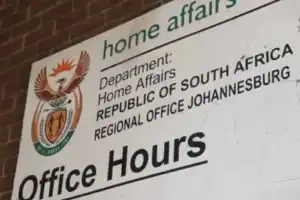Avoid accountability like a boss: Here are a few pointers from Zuma's playbook on how to slip the courts.

As a former statesman, ex-president Jacob Zuma has had his fair share of run-ins with the law, and he’s mastered the art of avoiding his day in court, ironically by spending plenty of time in court.
Here are a few pointers from Zuma’s playbook on how to slip the courts.
Solid Stalingrad defence
A good Stalingrad legal defence strategy involves wearing down the plaintiff or legal proceedings by appealing every ruling that is unfavourable to the defendant.
It usually uses whatever means possible to delay proceedings, and the defence’s arguments are typically void of merit.
The term comes from the World War II era Battle of Stalingrad, where the Soviet Union won the battle by wearing down attacking German forces over the course of five months.
However, the 79-year-old has shown that the Soviets have nothing on him, as he’s been delaying his day in court since at least 2005.
He did this by employing four simple steps.
Step one: Deny, deny, deny
This strategy is super simple; just quote Jamaican reggae musician Shaggy on all counts: “It wasn’t me.”
Zuma was charged with 16 counts of corruption, racketeering, fraud and money laundering in relation to the contentious arms deal that took place at the dawn of democracy, but that trial has been dogged with delays more than a decade later.

In total, he is accused of accepting 783 illegal payments while he was deputy president.
But, whether it’s the billion-dollar arms deal, corruption or state capture: Zuma’s primary defence strategy has been about maintaining his innocence, in other words, denying all charges.
Perhaps the former president is of the view that if one repeats his innocence enough without having to actually test his version in court – it will one day be accepted as the truth.
Step two: Convince everyone they misinterpreted the law

The former head of state managed to leave prison on medical parole just two months into his incarceration (for defying a Constitutional Court order compelling him to attend the Zondo Commission of Inquiry into state capture.)
After nearly a decade of trying to pin charges on the slippery Nkandla resident, his release from jail infuriated opposition parties and civil rights groups who are now challenging the medical parole decision at the country’s Supreme Court of Appeal.
Zuma’s latest legal recourse here has been that everyone (except him, his supporters and legal team) has seriously misinterpreted the law.
However, most legal pundits have chalked up this latest strategy as ‘legal nonsense’.
Step three: Demand prosecutors and judges recuse themselves
For the arms deal corruption case, Zuma claimed that state prosecutor Billy Downer leaked sensitive information regarding the case, was biased against him and argued the senior prosecutor lacked legal standing to prosecute him.

Zuma insisted that Downer recuse himself, which led to a separate issue the court needed to address before trial proceedings could begin.
The Pietermaritzburg high court first dismissed Zuma’s application for an order stating that Downer lacked legal standing.
Then the National Prosecuting Authority retaliated, saying it stood by Downer, who happens to know the case inside out.
It also issued Zuma with a nolle prosequi certificate, which allows Zuma to pursue a private prosecution.
Zuma also refused to present himself before the Zondo Commission of Inquiry investigating the capture and hollowing out of state organs during his tenure as president.
ALSO READ: Mabuza slams Zondo commission over Gupta lieutenant phone call allegations
Here too, Zuma insisted he would only attend if now Chief Justice Raymond Zondo recused himself because the two were friends— a view that the commission’s chairperson has firmly disputed.
Zondo then referred the matter to the Constitutional Court, which in turn ordered Zuma to present his version of events on state capture at the commission.
Zuma famously defied that order which led to his brief incarceration before the controversial release on medical parole.
Apart from wanting to protect his alleged friendship with Zondo, Zuma has also previously used a number of legal challenges and medical delays, forcing the clock to run out on the Commission before he would have to appear.
Step four: Have friends in high places and a solid support system
On 7 July 2021, the nation waited with bated breath to see the first president since 1994 report to prison for contempt of court.
What followed was a devastating attack on Zuma’s home province, KwaZulu-Natal, led by an army of die-hard supporters who promised to bring South Africa to its knees for daring to hold the former statesman to account.
The protests against Zuma’s jailing quickly escalated to an orgy of looting and violent attacks on communities and businesses in the province.
Over the years and through his never-ending legal dramas, Zuma has had a solid support system, led by his children and die-hard supporters, who have shown they are willing to troll and shut down any opposition against him.

Apart from an army of keyboard crusaders, Zuma also has friends in high places like former spy boss and ex-National Commissioner of Correctional Services Arthur Fraser.

Fraser proved himself a solid friend when his last act as prison boss was to overrule the entire medical parole board and release Zuma from jail after only serving two months of the 15-month sentence.
According to Fraser’s logic, Zuma didn’t need to be terminally ill as required by law, just old and apparently frail. Zuma’s defence team has thus far failed to provide the court with any evidence of his supposed terminal illness.
NOW READ: Zuma’s lawyers head to SCA over medical parole saga.
Support Local Journalism
Add The Citizen as a Preferred Source on Google and follow us on Google News to see more of our trusted reporting in Google News and Top Stories.






